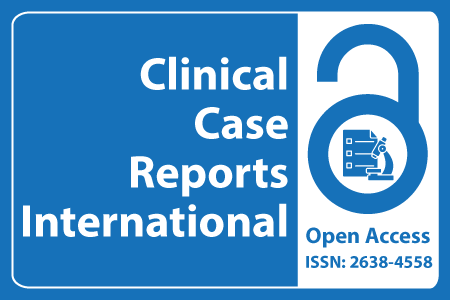
Journal Basic Info
- Impact Factor: 0.285**
- H-Index: 6
- ISSN: 2638-4558
- DOI: 10.25107/2638-4558
Major Scope
- Trauma
- Depression
- Pulmonary Medicine
- Transplantation Medicine
- ENT
- Psychiatry
- Hematology
- Dermatology and Cosmetology
Abstract
Citation: Clin Case Rep Int. 2022;6(1):1439.DOI: 10.25107/2638-4558.1439
Living Donor Liver Transplant from a Hepatitis C– Seropositive Donor into a Seronegative Recipient: A Case Report
Chen CP, Ong KH, Chen MJ, Tian YF and Sun DP
Department of Surgery, Division of General Surgery, Chi-Mei Medical Center, Tainan, Taiwan
Department of Surgery, Division of Transplant Surgery, Chi-Mei Medical Center, Tainan, Taiwan
*Correspondance to: Ding-Ping Sun
PDF Full Text Research Article | Open Access
Abstract:
Liver transplant is a lifesaving therapy for patients with end-stage liver disease who exhibit massive ascites, hepatic encephalopathy, and a high risk of esophageal bleeding due to liver decompensation. The shortages in liver donations leave these patients waiting in despair. Prior to the approval of direct-acting antiviral agents (DAAs), Hepatitis C Virus (HCV)–positive liver grafts were discarded three times more than HCV-negative grafts. However, with the use of DAAs, transplants from HCV-positive donors into HCV-negative recipients have become feasible and safe. The high serum virologic response rate obtained with DAA therapy is a milestone in the treatment of HCV infection. Few studies have focused on living HCV-positive donor liver transplants to HCV-negative recipients. We present an HCV-positive donor who received 8-week DAA therapy before donating the liver to her seriously ill HCV-negative relative. The donor’s recovery was uneventful, and the recipient was stable during the perioperative period and postoperative follow-up.
Keywords:
Living donor liver transplant; Hepatitis C-seropositive donor; Seronegative recipients
Cite the Article:
Chen CP, Ong KH, Chen MJ, Tian YF, Sun DP. Living Donor Liver Transplant from a Hepatitis C–Seropositive Donor into a Seronegative Recipient: A Case Report. Clin Case Rep Int. 2022; 6: 1439.













